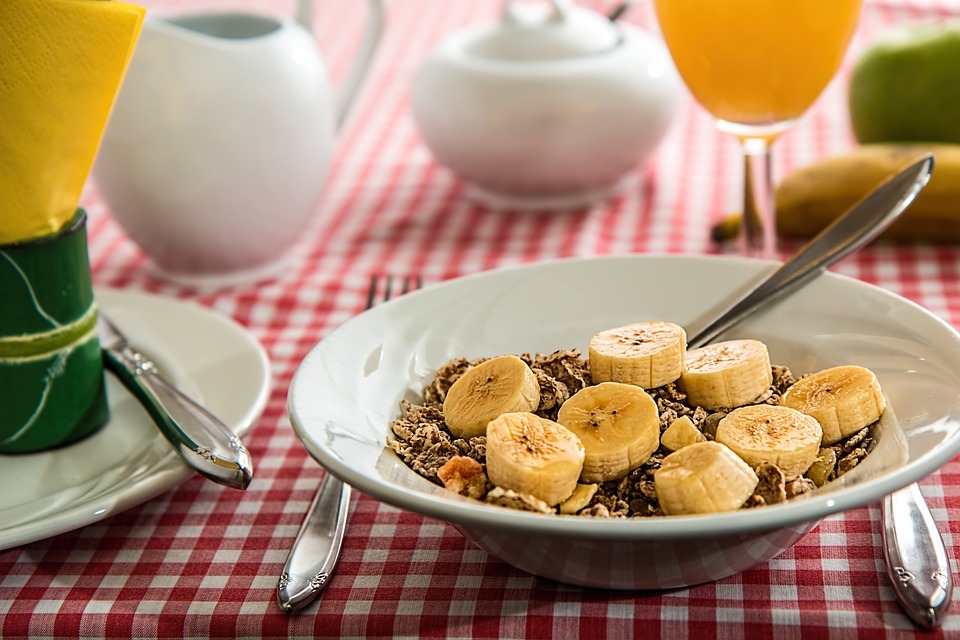Introduction: Understanding the Stomach sleeve for weight Loss
Losing weight can be a daunting task for many individuals who have struggled with obesity. Fortunately, advancements in medical technology have introduced various surgical procedures to aid in weight loss. One such procedure gaining popularity is the stomach sleeve, also known as a sleeve gastrectomy. In this article, we will delve into the details of the stomach sleeve for weight loss, exploring its benefits, risks, and how it works. Join us as we embark on a journey to understand this innovative approach to shedding those unwanted pounds.
What is a Stomach Sleeve?
The stomach sleeve is a surgical procedure that involves the removal of a significant portion of the stomach, leaving behind a smaller, banana-shaped pouch. This reduction in stomach volume restricts the amount of food one can consume, leading to weight loss. Unlike some other weight loss surgeries, the stomach sleeve does not involve rerouting the intestines, making it a less invasive option.
The Science Behind Stomach Sleeve for Weight Loss
When we consume food, our stomach stretches to accommodate it. This stretching triggers signals to our brain, indicating that we are full and should stop eating. However, individuals with obesity often struggle with these signals, resulting in overeating. The stomach sleeve procedure addresses this issue by reducing the stomach’s size, which in turn reduces the production of hunger-inducing hormones, such as ghrelin. With a smaller stomach, individuals feel full faster and consume fewer calories, leading to weight loss.
Benefits of Stomach Sleeve for Weight Loss
1. Significant Weight Loss: Research has shown that individuals who undergo a stomach sleeve procedure experience substantial weight loss in a relatively short period. This weight loss not only improves physical appearance but also contributes to better overall health.
2. Improved Co-morbidities: Obesity often comes with a range of comorbidities, such as type 2 diabetes, high blood pressure, and sleep apnea. The stomach sleeve has been found to improve or even resolve these conditions in many patients, thereby positively impacting their quality of life.
3. Less Invasive Procedure: Compared to other weight loss surgeries, the stomach sleeve is considered less invasive. It does not involve rerouting the intestines, making it a safer option with a shorter recovery period.
4. Long-Term Success: Studies have indicated that the stomach sleeve procedure offers long-term success when it comes to weight loss maintenance. This is due to the permanent reduction in stomach size, which supports sustained lifestyle changes.
5. Improved Mental Health: Weight loss achieved through the stomach sleeve procedure often results in improved mental health and increased self-confidence. Individuals feel more motivated to engage in physical activities and adopt healthier eating habits, leading to a positive cycle of well-being.
Potential Risks and Considerations
As with any surgical procedure, the stomach sleeve for weight loss carries certain risks. It is essential to be aware of these potential complications before making a decision. Some of the risks include:
1. Infection: Any surgical procedure carries the risk of infection. Following the post-operative care instructions provided by medical professionals can help minimize this risk.
2. Acid Reflux: Although not a common complication, some individuals may experience acid reflux after the stomach sleeve procedure. Medication and dietary modifications can help manage this issue.
3. Nutritional Deficiencies: With a reduced stomach size, individuals may need to be cautious about their nutrient intake. Regular monitoring of nutrient levels and appropriate supplementation can help prevent deficiencies.
4. Stricture Formation: In rare cases, scar tissue may form at the surgical site, leading to a narrowing of the stomach sleeve. This can cause discomfort and may require further medical intervention.
It is crucial to thoroughly discuss these risks and potential complications with a healthcare professional to make an informed decision about undergoing the stomach sleeve procedure.
conclusion: A Promising Option for Weight Loss
The stomach sleeve procedure offers hope to individuals struggling with obesity, providing them with a viable option for weight loss. By reducing the stomach’s size and influencing hunger-related hormones, this surgery can help individuals achieve significant and sustained weight loss. However, it is important to remember that the stomach sleeve is not a magical solution and requires commitment to lifestyle changes. By partnering with healthcare professionals and adopting a holistic approach to weight loss, individuals can embrace a healthier future with improved physical and mental well-being.
Common Inquiries Concerning Stomach Sleeve For Weight Loss
What is a Stomach Sleeve for Weight Loss?
A stomach sleeve, also known as a sleeve gastrectomy, is a surgical procedure that involves removing a large portion of the stomach to create a smaller, sleeve-shaped stomach. This procedure restricts the amount of food a person can eat, leading to weight loss. Unlike other weight loss surgeries, such as gastric bypass, a stomach sleeve does not involve rerouting the intestines.
Important information:
1. A stomach sleeve reduces the size of the stomach, resulting in decreased food intake.
2. This procedure does not involve bypassing the intestines.
3. It is a surgical option for weight loss.
Who is a candidate for a Stomach Sleeve?
Candidates for a stomach sleeve are usually individuals who have a body mass index (BMI) of 40 or higher, or those with a BMI of 35 or higher with obesity-related health conditions, such as diabetes or hypertension. Candidates must have tried non-surgical weight loss methods, such as diet and exercise, without success. It is important for candidates to understand the risks and benefits of the procedure before making a decision.
Important information:
1. Candidates should have a high BMI or obesity-related health conditions.
2. Non-surgical weight loss methods should be attempted before considering a stomach sleeve.
3. Understanding the risks and benefits of the procedure is crucial.
How is a Stomach Sleeve performed?
During a stomach sleeve procedure, the surgeon makes several small incisions in the abdomen and inserts a laparoscope, which is a tiny camera, to visualize the stomach. The majority of the stomach is then removed, leaving behind a small, sleeve-shaped stomach. The procedure takes approximately one to two hours, depending on the complexity of the case. It is usually performed under general anesthesia.
Important information:
1. Small incisions are made in the abdomen to access the stomach.
2. A laparoscope is used to visualize the stomach during the procedure.
3. The majority of the stomach is removed to create a smaller, sleeve-shaped stomach.
What are the benefits of a Stomach Sleeve?
A stomach sleeve offers several benefits for individuals seeking weight loss. Firstly, it helps to reduce hunger by limiting the amount of food the stomach can hold. Secondly, it leads to significant weight loss, resulting in improved overall health and a reduced risk of obesity-related medical conditions. Lastly, it can enhance quality of life by increasing mobility and improving self-esteem.
Important information:
1. A stomach sleeve reduces hunger by restricting the amount of food the stomach can hold.
2. It leads to significant weight loss and improved overall health.
3. The procedure can enhance quality of life by increasing mobility and improving self-esteem.
What are the potential risks and complications of a Stomach Sleeve?
While a stomach sleeve is generally considered safe, there are potential risks and complications associated with the procedure. These can include infection, bleeding, leakage from the staple line, blood clots, and reactions to anesthesia. Additionally, some patients may experience long-term complications, such as vitamin deficiencies, acid reflux, or the need for further surgery. It is important for individuals considering a stomach sleeve to discuss these risks with their surgeon.
Important information:
1. Potential risks and complications of a stomach sleeve include infection, bleeding, and leakage from the staple line.
2. Blood clots and reactions to anesthesia are also possible risks.
3. Long-term complications may include vitamin deficiencies, acid reflux, or the need for further surgery.
Common Misbeliefs Concerning Stomach Sleeve For Weight Loss
1. Stomach Sleeve is a “magic” solution for weight loss
One common Misconception about stomach sleeve surgery for weight loss is that it is a “magic” solution that guarantees immediate and effortless weight loss. While stomach sleeve surgery can be an effective tool for weight loss, it is important to understand that it is not a quick fix or a cure-all.
2. Stomach Sleeve surgery is only for people who are extremely obese
Another misconception is that stomach sleeve surgery is only suitable for individuals who are extremely obese. While stomach sleeve surgery is often recommended for people with a body mass index (BMI) of 40 or higher, it can also be an option for individuals with a BMI between 35 and 40 who have obesity-related health conditions.
3. Stomach Sleeve surgery is a purely cosmetic procedure
Some people mistakenly believe that stomach sleeve surgery is purely a cosmetic procedure aimed at improving appearance. However, the primary goal of stomach sleeve surgery is to help individuals achieve significant weight loss and improve their overall health. While it can have positive cosmetic effects, such as reducing excess skin, the main focus is on health improvement.
4. Stomach Sleeve surgery means you can eat anything you want
A common misconception about stomach sleeve surgery is that it allows individuals to eat anything they want without consequences. While the surgery does reduce the size of the stomach, it is still vital to make healthy food choices and practice portion control. Eating excessively or consuming unhealthy foods can lead to weight regain or other complications.
5. Stomach Sleeve surgery is a risk-free procedure
There is a misconception that stomach sleeve surgery is a risk-free procedure. However, like any surgical procedure, stomach sleeve surgery carries certain risks and potential complications. These can include infection, bleeding, blood clots, leaks from the staple line, and strictures. It is important for individuals considering this surgery to thoroughly discuss the potential risks and benefits with their healthcare provider.
Stomach Sleeve For Weight Loss
#stomach #sleeve #sleeve #gastrectomy #gastric #sleeve #surgery #surgical #procedure #performed #aid #weight #loss #involves #removing #portion #stomach #create #smaller #sleeveshaped #stomach

